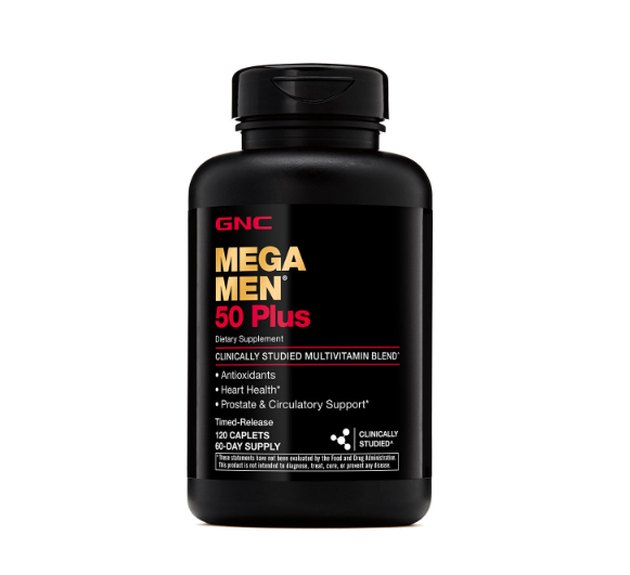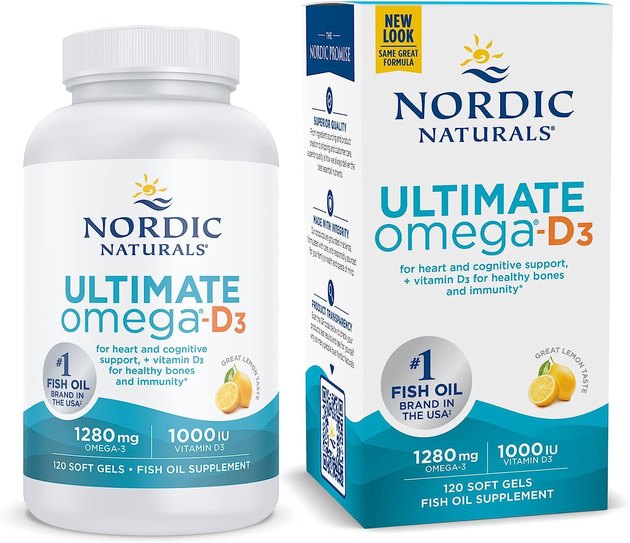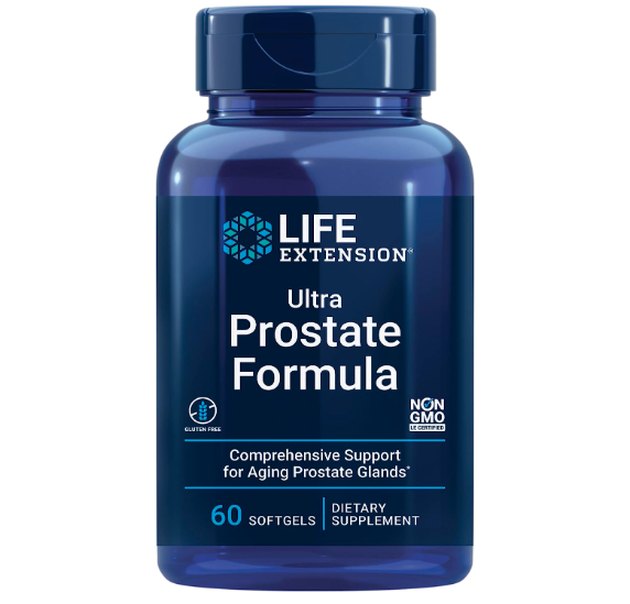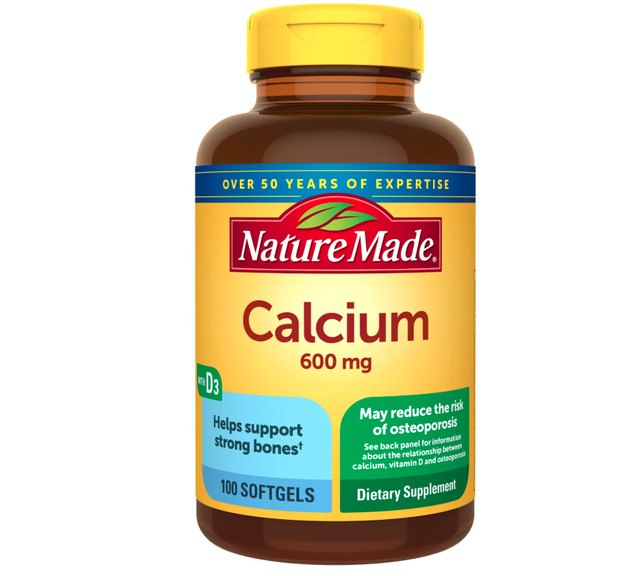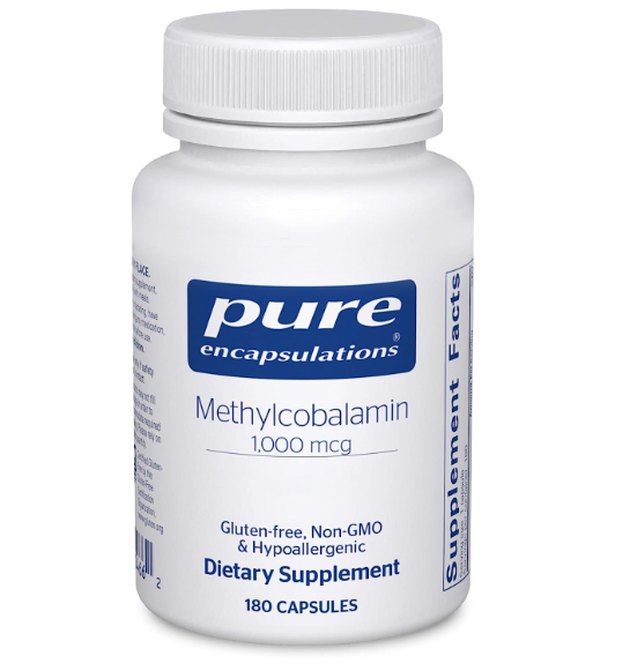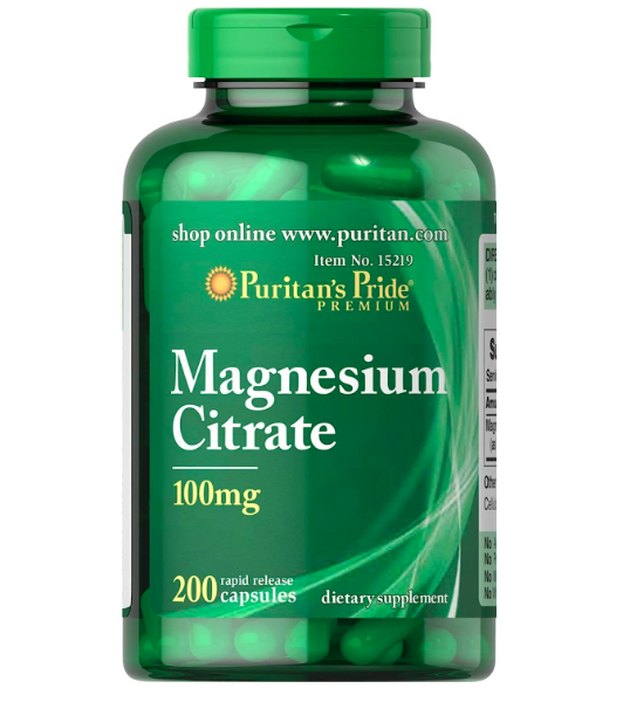
As you age, your body may begin showing signs of wear and tear: Your joints might hurt, your hormone levels change, your memory may not function as well as it used to.
Your nutrient requirements change, too — and your body's ability to absorb nutrients from food may decrease. As a result, your doctor might recommend supplements that you wouldn't have needed when you were younger.
Video of the Day
Video of the Day
Take a look at recommended supplements for 60-year-old men, along with information about the changing nutritional priorities for people in this group.
A quick note on language: While we typically use more inclusive language, most supplement makers market their options toward either women or men, so we've used those terms here.
Our Picks
- Best Multivitamin: GNC Mega Men 50 Plus Multi ($44.99, GNC.com)
- Best Omega-3 Supplement: Nordic Naturals Ultimate Omega-D3 ($44.16, Amazon.com)
- Best Saw Palmetto Supplement: Life Extension Ultra Prostate Formula ($29.25, LifeExtension.com)
- Best Calcium and Vitamin D Supplement: Nature Made Calcium 600 mg with Vitamin D3 ($19.99, Riteaid.com)
- Best Vitamin B12 Supplement: Pure Encapsulations Methylcobalamin 1,000 mcg ($43.15, Amazon.com)
- Best Magnesium Supplement: Life Extension Magnesium Caps ($24.60, Amazon.com)
How We Chose
The FDA doesn't approve a supplement's safety and efficacy before a product goes on the market, but it does establish Current Good Manufacturing Practices (CGMP) for supplements, which sets standards for things like preparation and storage.
We spoke to registered dietitians and included quality products that adhere to CGMP or have verification from independent quality organizations, such as:
1. Best Multivitamin: GNC Mega Men 50 Plus Multi
This multivitamin is recommended for men over 50 in an April 2020 review of multivitamins and supplements from ConsumerLab, an organization that independently tests health and nutritional products.
It supplies 200 percent of your recommended daily value (DV) of vitamin D, which is important for bone health. It also contains calcium, another key to bone health.
2. Best Omega-3 Supplement: Nordic Naturals Ultimate Omega-D3
This omega-3 supplement comes recommended by Amy Shapiro, RD, CDN and founder of Real Nutrition. It offers 1,280 milligrams of omega-3, including both EPA and DHA.
It also contains 125 percent of your DV of vitamin D3, which many people are deficient in, according to Shapiro. The manufacturer claims you'll avoid fishy burps (a frequent omega-3 supplement side effect).
3. Best for Prostate Health: Life Extension Ultra Prostate Formula
This Consumer Lab-approved supplement from Life Extension has 320 milligrams of saw palmetto in each two-capsule serving. "Saw palmetto is important to support prostate health," Shapiro says.
It also contains beta-sitosterol, a plant compound that's linked to better urine flow, per Kaiser Permanente.
4. Best Calcium and Vitamin D Supplement: Nature Made Calcium With Vitamin D3
Bone health is important for older men. This vitamin contains both vitamin D3 and calcium, which can help maintain healthy bones. The dose for this supplement is one to two pills a day — note that you'll need to take each pill with food and water.
Each pill provides half of your DV of vitamin D3 and 46 percent of your DV of calcium.
5. Best Vitamin B12 Supplement: Pure Encapsulations Methylcobalamin 1,000 mcg
Many older adults fall short on vitamin B12, as changes to the acids present in the stomach can make it hard to extract from food. This is one of the brands Shapiro recommends, noting that it's third-party tested.
6. Best Magnesium Supplement: Puritan's Pride Mineral Magnesium Citrate
If you, like many Americans, are falling short on magnesium, this supplement — highly ranked by ConsumerLab — will provide up to 100 percent of your DV, depending on how many capsules you choose to take. (The recommended dose is one capsule, four times per day, but you can get by with one to two, according to ConsumerLab.)
What Should a 60-Year-Old Man Look for in a Supplement?
Multivitamin
Your best bet is to get the vitamins and minerals you need through food, according to the National Institute on Aging (NIA). Still, dietary restrictions or an unbalanced diet can make taking a daily multivitamin a good idea.
Plus, older people can sometimes struggle to absorb vitamins, per the NIA, which may make supplements a good fit. Choose a multivitamin that contains the micronutrients that older men require — those include calcium, vitamin D, vitamin B12 and potassium, according to the National Council on Aging.
Tip
Always talk with your doctor before starting any new supplement.
Omega-3
Omega-3 fatty acids are a type of polyunsaturated fat (considered a "healthy" fat). These types of fat may help ward off heart disease and stroke by reducing LDL cholesterol and triglycerides, according to Harvard Health Publishing.
Taking omega-3 fatty acids is good for brain and heart health, Shapiro says.
A diet high in omega-3s is linked to lower rates of cognitive decline, per the Linus Pauling Institute at Oregon State University. There's some debate over the benefits of omega-3 supplements, but Harvard Health Publishing notes they're recommended for people with a history of heart disease.
Saw Palmetto
With age, it's common for the prostate to start to enlarge. This condition is referred to as benign prostate hyperplasia (BPH) and it can cause issues with urination and ejaculation, as well as an increase in urinary tract infections, according to the U.S. National Library of Medicine.
Saw palmetto might help offset some of these BPH symptoms, per Memorial Sloan Cancer Center.
Vitamin D and Calcium
Older adults may struggle to absorb vitamin D, which is important for healthy bones, according to the Mayo Clinic. Men between the ages of 51 and 70 should aim to get 600 IU a day, according to the NIA. Those over 70 should try to get 800 IU.
If you take a multivitamin, you will likely get the required amount, or more, and will not need an additional supplement.
When it comes to bone-supporting calcium, a multivitamin doesn't usually fulfill your entire recommended daily intake of 1,000 milligrams a day for men ages 51 to 70, according to the NIA.
Vitamin B12
It gets harder to absorb vitamin B12 with age, Shapiro says. That's because older adults may lack a certain acid in their stomach, which stops them from absorbing this important vitamin through food, per the ODS.
This vitamin helps keep your cells healthy. Aim to get 2.4 micrograms a day, according to the ODS. If you're taking a multi, you may get that amount of vitamin B12 through it and won't need additional supplements.
Magnesium
Most Americans don't get enough magnesium — that's particularly true for men aged 71 and older, according to the ODS.
"Magnesium is important if you are deficient to help with muscle and sleep," Shapiro says.
The recommended daily allowance for this mineral for men over age 51 is 420 milligrams a day, per the ODS. If you're taking a multi, it may not provide sufficient magnesium, so read labels carefully.
How to Choose and Take a Supplement
The vitamin aisle can be an overwhelming space and manufacturers may oversell their products with the claims on packaging. As you browse options, here are some considerations to keep in mind:
- Choose reputable brands. Look on the label to see if it's been tested by a third party, such as the U.S. Pharmacopeial Convention (USP).
- Avoid ingredients as needed. If you have a food allergy or dietary restriction, check the ingredient list to make sure the supplement doesn't contain anything that's off-limits.
- Follow the dosage instructions. Overdoing it on vitamins isn't good for your health, so follow the instructions on the label. It's also wise to check in with your health care provider before starting to take any supplements — in some cases, there can be interactions with other medications, according to the U.S. Food & Drug Administration (FDA).
- ConsumerLabs: "Multivitamin and Multimineral Supplements Review"
- National Institute on Aging: "Vitamins and Minerals for Older Adults"
- Harvard Health Publishing: "The truth about fats: the good, the bad, and the in-between"
- Linus Pauling Institute at Oregon State University: "Essential Fatty Acids"
- Harvard Health Publishing: "Should you be taking an omega-3 supplement?"
- Office of Dietary Supplements: "Omega-3 Fatty Acids"
- U.S. National Library of Medicine: "Aging changes in the male reproductive system"
- Memorial Sloan Kettering Cancer Center: "Saw Palmetto"
- Mayo Clinic: "Vitamin D"
- ODS: "Vitamin B12"
- ODS: "Magnesium"
- U.S. Food & Drug Administration: "Mixing Medications and Dietary Supplements Can Endanger Your Health"
- Kaiser Permanente: "Enlarged Prostate: Herbal Therapy"
- Consumer Lab: "Magnesium Supplements Review"
- National Council on Aging: "Eating Well After 50: 5 Ways to Make Healthy Food Choices"
- Consumer Lab: "Prostate Supplements Review"
